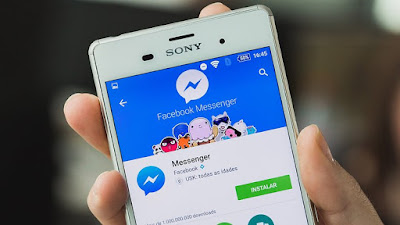In 2014, the world's largest social network, Facebook, acquired the world's largest messenger service, WhatsApp. The acquisition cost of $ 22 billion alone left many astonished and gaping-mouthed. But many users, certainly were not pleased with the news. And now it's beginning to unravel bit by bit that the critics might not have been wrong with their concerns.
The takeover of WhatsApp by Facebook provided for a rather big outcry. Many people were disgruntled with the acquisition and turned their backs on the text messaging service. Despite this, the two companies don't seem to have been hurt much. On the contrary, they have grown considerably over the past few years and are among the most successful companies in the tech world - especially in the smartphone sphere.
Worldwide, Facebook Messenger and WhatsApp are by far the most used services to send messages to friends and family. The combination of these two services under one roof may be a cause for concern though, given that the bulk of the communication goes through a single private enterprise. And that is exactly what was criticized. How did Facebook react? With key promises. It promised that data between the two companies and their services would not be shared. Advertising would never become an issue at WhatsApp, neither banner advertising nor any other form of advertising. At the very least, WhatsApp's statement at the time was that "for you, our users, nothing will change". But today, what has remained of these promises? Unfortunately not much.
Automatic data comparison between Facebook and WhatsApp
Facebook also made a promise when it took over WhatsApp: the data from the two services would never be shared. Well, three years after the takeover, it looks like Facebook might have been lying through its teeth. Last year, Facebook began to do just what it had promised not to do. There was a lot of backlash and criticism, and this year the EU even dished out a juicy punishment to Facebook (€110 million penalty in May this year, that's just under $130 million).
But what does this mean for data sharing? So far, not much. The EU emphasized that this penalty fine was not related to ongoing proceedings on the actual merging process. Ultimately, it was only about inaccurate information that had been provided by Facebook during the review of the takeover. It's not clear whether the changes that came into effect last year were legitimate or not. Current antitrust proceedings also run independently of this penalty. The European authorities stated that Facebook had cooperated in this case and had admitted to providing misleading information.
What about advertising on WhatsApp?
The subject of advertising has always been somehow present at WhatsApp, even if the company has emphasized toi date that there will never be such a thing. Facebook is certainly not against any kind of advertising, as we know - it is their business model. There was, of course, great concern that the issue of advertising in the messaging service would be dealt with differently. But Facebook quickly appeased its users ..
it would seem that we need to relativize this commitment, or at least the company itself does to decide how it can make money from WhatsApp without driving its users away. It came up with a solution already, which is the app WhatsApp for Business, which is already rolled out in India. It is a self-contained app that allows small businesses to maintain contact with their customers. Customers must register explicitly for the service so that they can be contacted by companies. At least Facebook is still dispensing with annoying banner advertising on the "normal" WhatsApp.
Data sharing between Facebook and WhatsApp plays an important role in the long-term, considering that WhatsApp for Business was only a first experiment. It is not outside the realms of our imagination that this service could sooner or later no longer be offered separately from the main app. So far, WhatsApp has no further information from users than their phone number, names and contacts. BUT more and more Facebook users are entering their phone numbers, just to make the account more secure through two-step verification. And Facebook Messenger always asks for your number, right from the beginning, if only to be able to function as a text messaging app. oen might consider that Facebook could easily connect these data together, linking the contacts of both services, and suitable advertising could thus be rolled out on WhatsApp. It would be really astonishing if Facebook did not tackle this.
WhatsApp data transfer is imminent
Here is another fact: WhatsApp stores data. They are not on Facebook's own servers, but at SoftLayer, an IBM subsidiary. This is not a problem in itself, but one might assume that a company of this size would store the data under its own roof. Of course, the data is transferable to its own servers, which is what Facebook has done in the past, like with Instagram. This in itself is not an issue but it also means that sharing the data between the services is made easier than ever before.
The acquisition of WhatsApp by Facebook was met with general disapproval from the masses, that much was obvious. Facebook responded accordingly and promised its users something in return, to try and keep them on board. What it promised was almost impossible to keep over subsequent years. Surprisingly, however, users seem to have accepted this in general. In my personal circle of friends, the workings of Facebook and WhatsApp have not been a hot topic really - but they should.
I am anxious to see what will happen with ongoing investigations into the company and whether there will be clear result or not. A company of this size can easily accept a penalty of over $100 million - as opposed to forcing the company to stop sharing data and thereby destroy the targeted business model.






0 Comments